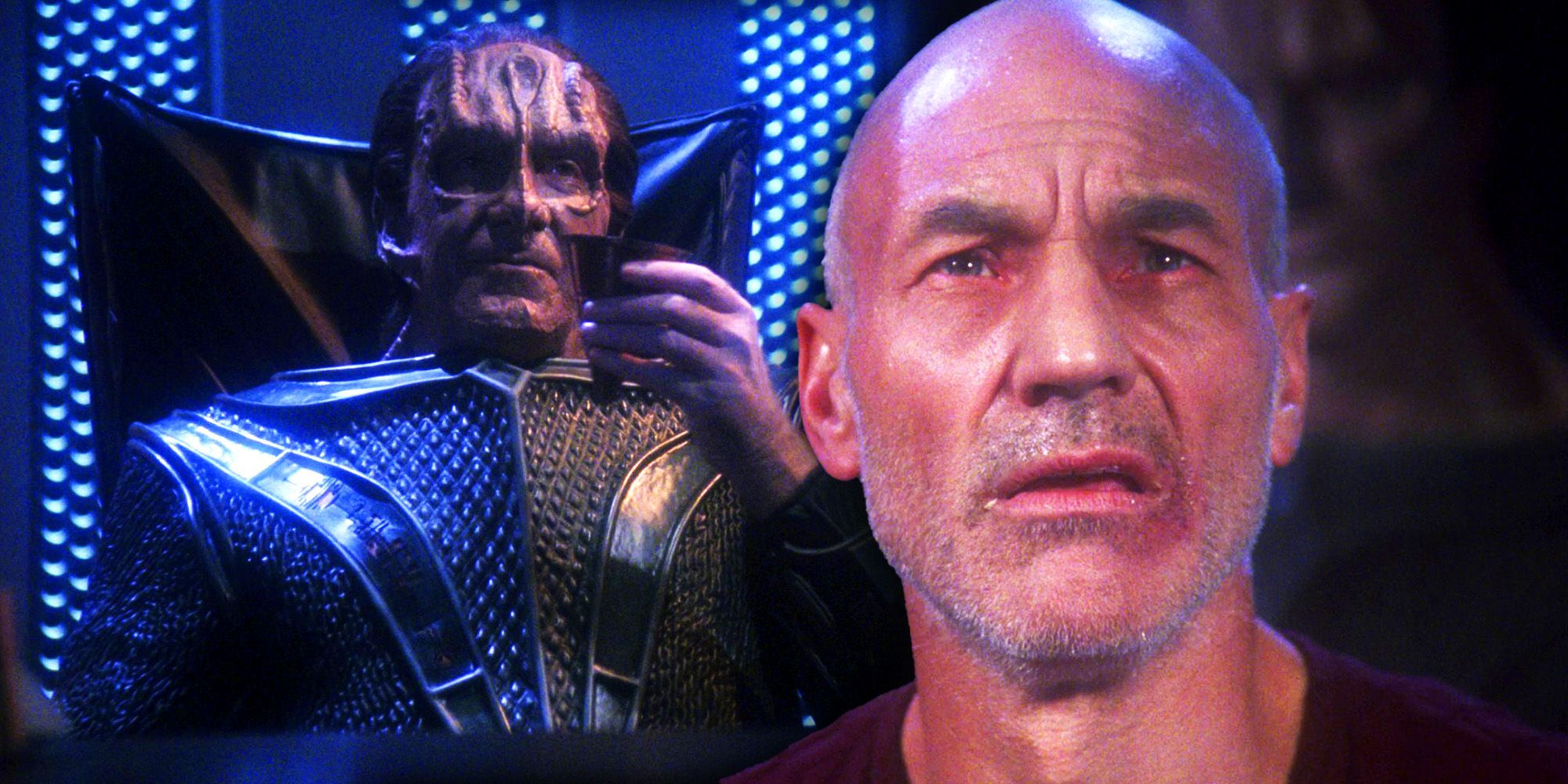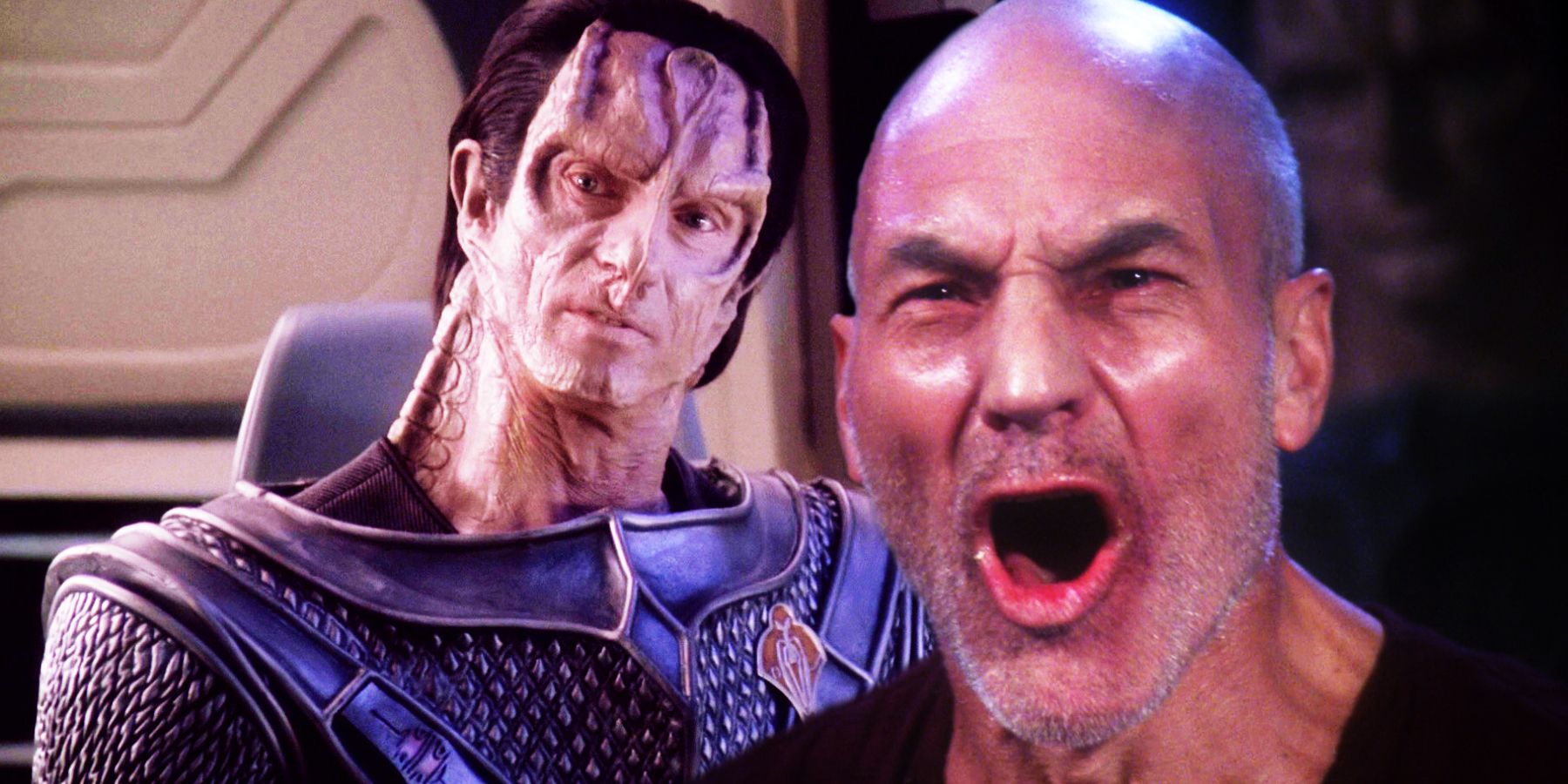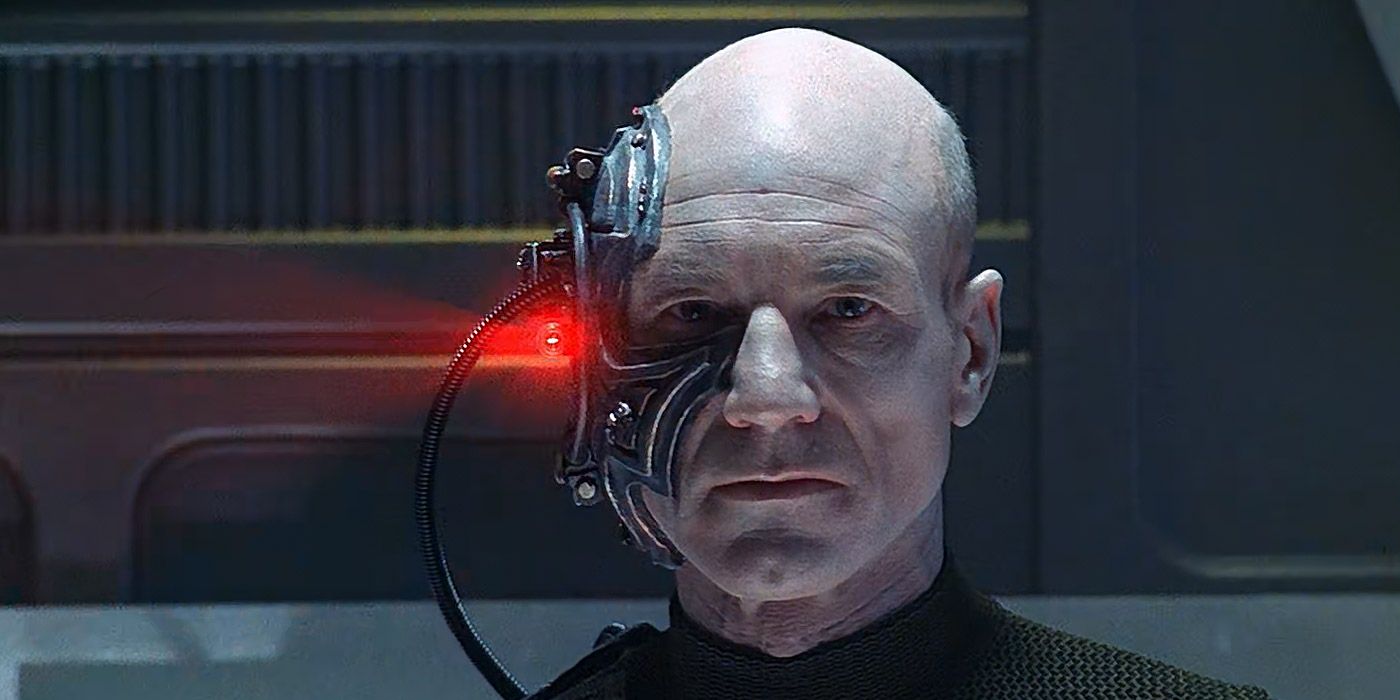
Summary
- “Chain of Command” was a powerful TNG episode known for its depiction of torture and forced interrogation.
- Captain Picard’s victory in the episode was simply surviving the brutal torture, reflecting the realities of human rights struggles.
- This episode, featuring exceptional performances by Patrick Stewart and David Warner, is considered one of the best in Star Trek history.
Michael Piller laid out why Captain Jean-Luc Picard (Patrick Stewart) was the winner of his famous torture episode from Star Trek: The Next Generation. “Chain of Command, Parts 1&2” was a TNG season 6 two-parter and is still considered one of the series’ best episodes. After being relieved of his command on the USS Enterprise-D and assigned to a covert Federation intelligence-gathering mission, Captain Picard is captured by Cardassian forces and subsequently tortured for information by the brutal Gul Madred (David Warner). Although Madred subjects Picard to some unimaginably cruel interrogation methods, Picard ultimately succeeds in not giving up any information about Starfleet.
“Chain of Command” is often noted for the incredible performances of both Patrick Stewart as Picard and David Warner in one of his Star Trek roles as Madred, and its unflinching depiction of torture and forced interrogation. In The Fifty-Year Mission: The Next 25 Years: From The Next Generation to J. J. Abrams: The Complete, Uncensored, and Unauthorized Oral History of Star Trek by Mark A. Altman and Edward Gross, TNG showrunner Michael Piller discussed the episode and the creative team’s decisions about how to portray the horrors of torture in a way that both honored real victims and made it clear that Picard was the episode’s victor. Read Piller’s full quote below:
“Ultimately, the victory for Picard is just surviving. We made the decision early on that we couldn’t say that Captain Picard was such a great man that he would not break under torture because that would be doing a great disservice to everybody in the human rights struggle who has broken. Nobody can resist torture. Anybody who wants to get you to speak, will get you to talk if they’re willing to do the hideous things necessary. There had to be a different kind of victory. I can’t imagine a better show than “Chain of Command, Part Two” and it had no tricks or whizbang stuff. And it was one of the least expensive shows of the season. David Warner was sensational and Patrick Stewart was even better. I don’t think there’s been a better show in the history of the series.“

Picard’s Cardassian Torture Made Star Trek: DS9’s Setup Personal
Picard’s torture in TNG would have been fresh in the minds of viewers as DS9’s Commander Sisko prepared to face off against Star Trek’s Cardassians.
“Chain Of Command” Wasn’t The First Time Picard Won By Surviving

Although “Chain of Command” is perhaps the most obvious example of Captain Picard’s ability to survive some of the worst experiences imaginable, it wasn’t the first time he had done so in TNG. Picard is a survivor in general, and before season 6, had pulled through remarkably well after being assimilated by the Borg in “The Best of Both Worlds,” another famous TNG two-parter. Although Picard’s trauma from his time with the Borg was explored in subsequent episodes and movies, he demonstrated the same ability to keep going after that ordeal as he did during and after his torture in “Chain of Command.”
Besides the Borg, Picard showed he could overcome a different kind of difficult situation during his experiences in TNG‘s season 5 episode “The Inner Light,” recently revealed to be Patrick Stewart’s favorite TNG episode. Although didn’t show Picard being physically harmed, the experience of living a 40-year lifetime in only 25 minutes thanks to an alien probe was emotionally and psychologically devastating. Although Star Trek: The Next Generation implied the toll the experience took on Picard in subsequent episodes, he bore up remarkably well under the weight of carrying the final memories of a forgotten civilization. These episodes demonstrated what kind of survivor Picard was even before “Chain of Command.”





